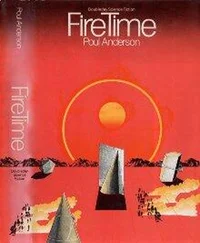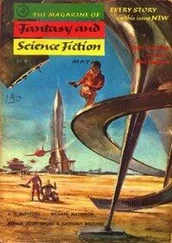Poul Anderson - There Will Be Time
Здесь есть возможность читать онлайн «Poul Anderson - There Will Be Time» весь текст электронной книги совершенно бесплатно (целиком полную версию без сокращений). В некоторых случаях можно слушать аудио, скачать через торрент в формате fb2 и присутствует краткое содержание. Год выпуска: 1972, Издательство: Doubleday, Жанр: Фантастика и фэнтези, на английском языке. Описание произведения, (предисловие) а так же отзывы посетителей доступны на портале библиотеки ЛибКат.
- Название:There Will Be Time
- Автор:
- Издательство:Doubleday
- Жанр:
- Год:1972
- ISBN:нет данных
- Рейтинг книги:5 / 5. Голосов: 1
-
Избранное:Добавить в избранное
- Отзывы:
-
Ваша оценка:
- 100
- 1
- 2
- 3
- 4
- 5
There Will Be Time: краткое содержание, описание и аннотация
Предлагаем к чтению аннотацию, описание, краткое содержание или предисловие (зависит от того, что написал сам автор книги «There Will Be Time»). Если вы не нашли необходимую информацию о книге — напишите в комментариях, мы постараемся отыскать её.
Nominated for Hugo Award for Best Novel in 1973.
There Will Be Time — читать онлайн бесплатно полную книгу (весь текст) целиком
Ниже представлен текст книги, разбитый по страницам. Система сохранения места последней прочитанной страницы, позволяет с удобством читать онлайн бесплатно книгу «There Will Be Time», без необходимости каждый раз заново искать на чём Вы остановились. Поставьте закладку, и сможете в любой момент перейти на страницу, на которой закончили чтение.
Интервал:
Закладка:
“We flew across the Atlantic,” Havig would tell me. “Headquarters was in … what had been … Wisconsin. Yes, they let me fetch my chronolog from where I’d hidden it, though I pleaded language difficulties to avoid telling them what it was. They themselves had had to cast about to zero in on the target date. That’s a clumsy, lifespan-consuming process, which probably helps account for the dearth of travelers they found, and certainly explains their own organization’s reluctance to make long temporal journeys. Return was easier, because they’d erected a kind of big billboard in the ruins, on which an indicator was set daily to the correct date.
“In late twenty-first-century America, things were barely getting started, The camp and sheds were inside a stockade and had been attacked more than once by, uh, natives or marauders. From then we moved on uptime to when the Sachem had sent his expedition out to that Easter.”
I do not know if my friend ever looked upon Jesus.
7
AFTER A HUNDRED-ODD YEARS, the establishment was considerable. Fertility was increasing in formerly tainted soil, thus letting population build up. Grainfields ripened across low hills, beneath a mild sky where summer clouds walked. Cultivation of timber had produced stands which made cupolas of darker green where birds nested and wind murmured. Roads were dirt, but laid out in a grid. Folk were about, busy. They had nothing except hand tools and animal-drawn machines; however, these were well-made. They looked much alike in their mostly homespun blue trousers and jackets — both sexes — and their floppy straw hats and clumsy shoes: weather-beaten and work-gnarled like any pre-industrial peasants, hair hacked off below the ears, men bearded; they were small by the standards of our time, and many had poor teeth or none. Yet they were infinitely better off than their ancestors of the Judgment.
They paused to salute the travelers, who rode on horseback from the airfield site, then immediately resumed their toil. An occasional pair of mounted soldiers, going by, drew sabers in a deferential but less servile gesture. They were uniformed in blue, wore steel helmets and breastplates, bore dagger at belt, bow and quiver and ax at croup, lance in rest with red pennon aflutter from the shaft, besides those swords.
“You seem to keep tight control,” Havig said uneasily.
“What else?” Krasicki snapped. “Most of the world, including most of this continent, is still in a state of barbarism or savagery, where man survives at all. We can’t manufacture what we can’t get the materials and machinery for. The Mong are on the plains west and south of us. They would come in like a tornado, did we let down our defenses. Our troopers aren’t overseeing the workers, they’re guarding them against bandits. No, those people can thank the Eyrie for everything they do have.”
The medieval-like pattern was repeated in town. Families did not occupy separate homes, they lived together near the stronghold and worked the land collectively. But while it looked reasonably clean, which was a welcome difference from the Middle Ages, the place had none of the medieval charm. Brick rows flanking asphalted streets were as monotonous as anything in the Victorian Midlands. Havig supposed that was because the need for quick though stout construction had taken priority over individual choice, and the economic surplus remained too small to allow replacing these barracks with real houses. If not — But he ought to give the Sachem the benefit of the doubt, till he knew more … He saw one picturesque feature, a wooden building in a style which seemed half Asian, gaudily painted. Krasicki told him it was a temple, where prayers were said to Yasu and sacrifices made to that Oktai whom the Mong had brought.
“Give them their religion, make the priests cooperate, and you have them,” he added.
Havig grimaced. “Where’s the gallows?”
Krasicki gave him a startled glance. “We don’t hold public hangings. What do you think we are?” After a moment: “What milksop measures do you imagine can pull anybody through years like these?”
The fortress loomed ahead. High, turreted brick walls enclosed several acres; a moat surrounded them in turn, fed by the river which watered this area. The architecture had the same stem functionality as that of the town. Flanking the gates, and up among the battlements, were heavy machine guns, doubtless salvaged from wreckage or brought piece by piece out of the past. Stuttering noises told Havig that a number of motor-driven generators were busy inside.
Sentries presented arms. A trumpet blew. Drawbridge planks clattered, courtyard flagstones resounded beneath horsehoofs.
Krasicki’s group reined in. A medley of people hastened from every direction, babbling their excitement. Most, livened, must be castle servants. Havig scarcely noticed. His attention was on one who thrust her way past them until she stood before him.
Enthusiasm blazed from her. He could barely follow the husky, accented voice: “Oktai’s tail! You did find ’m!”
She was nearly as tall as him, sturdily built, with broad shoulders and hips, comparatively small bust, long smooth limbs. Her face bore high cheekbones, blunt nose, large mouth, good teeth save that two were missing. (He would learn they had been knocked out in a fight.) Her hair, thick and mahogany, was not worn in today’s style, but waist-length, though now coiled in braids above barbarically large brass earrings. Her eyes were brown and slightly almond-some Indian or Asian blood-under the heavy brows; her skin, sun-tanned, was in a few places crossed by old scars. She wore a loose red tunic and kilt, laced boots, a Bowie knife, a revolver, a loaded cartridge belt, and, on a chain around her neck, the articulated skull of a weasel.
“Where ’ey from? You, yon!” Her forefinger stabbed at Havig. “‘E High Years, no?” A whoop of laughter. “You got aplen’y for tell me, trailmate!”
“The Sachem is waiting,” Krasicki reminded her.
“‘Kay, I’ll wait alike, but not ’e whole jokin’ day, you hear?” And when Havig had dismounted, she flung arms around him and kissed him full on the lips. She smelled of sunshine, leather, sweat, smoke, and woman. Thus did he meet Leonce of the Glacier Folk, the Skula of Wahorn.
The office was the antechamber of a suite whose size and luxury it reflected. Oak paneling rose above a deep-gray, thick-piled carpet. Drapes by the windows were likewise furry and feelable: mink. Because of their massiveness, desk, chairs, and couch had been fashioned in this section of time; but the care lavished on them was in contrast to the austerity Havig had observed in other rooms opening on the hallways which took him here. Silver frames held some photographs. One was a period piece, a daguerreotype of a faded-looking woman in the dress of the middle nineteenth century. The rest were candid shots taken with an advanced camera, doubtless a miniature using a telescopic lens like his own. He recognized Cecil Rhodes, Bismarck, and a youthful Napoleon; he could not place the yellow-bearded man in a robe.
From this fifth floor of the main keep, the view showed wide across that complex of lesser buildings, that bustle of activity, which was the Eyrie, and across the land it ruled. Afternoon light slanted in long hot bars. The generator noise was a muted pecking.
“Let’s have music, eh?” Caleb Wallis flipped the switches of a molecular recorder from shortly before the Judgment. Notes boomed forth. He lowered the volume but said: “That’s right, a triumphal piece. Lord, I’m glad to have you, Havig!” The newcomer recognized the Entry of the Gods from Das Rheingold.
The rest of his group, including their guides, had been dismissed, not altogether untactfully, after a short interview had demonstrated what they were. “You’re different,” the Sachem said. “You’re the one in a hundred we need worst. Here, want a cigar?”
Читать дальшеИнтервал:
Закладка:
Похожие книги на «There Will Be Time»
Представляем Вашему вниманию похожие книги на «There Will Be Time» списком для выбора. Мы отобрали схожую по названию и смыслу литературу в надежде предоставить читателям больше вариантов отыскать новые, интересные, ещё непрочитанные произведения.
Обсуждение, отзывы о книге «There Will Be Time» и просто собственные мнения читателей. Оставьте ваши комментарии, напишите, что Вы думаете о произведении, его смысле или главных героях. Укажите что конкретно понравилось, а что нет, и почему Вы так считаете.












